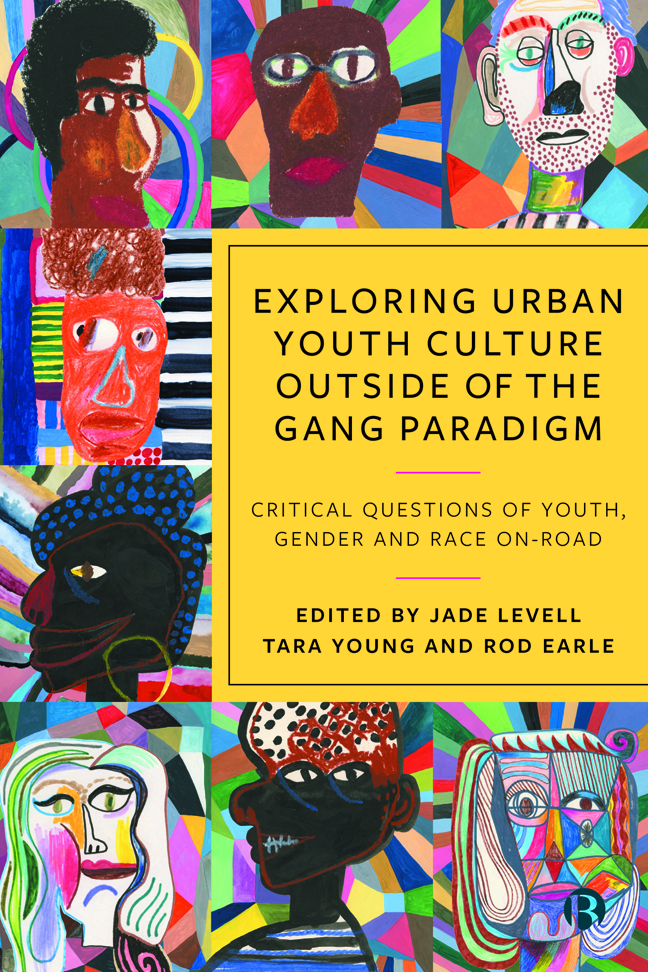 Exploring Urban Youth Culture Outside of the Gang Paradigm
Exploring Urban Youth Culture Outside of the Gang Paradigm Book contents
- Frontmatter
- Contents
- Notes on Contributors
- Foreword
- Preface
- 1 Introduction: Youth and On-Road – Making Gender and Race Matter
- 2 Black, British Young Women On-Road: Intersections of Gender, Race and Youth in British Interwar Youth Penal Reform
- 3 Tainted Love: Intimate Relationships and Gendered Violence On-Road
- 4 (The) Trouble with Friends: Narrative Stories of Friendship and Violence On-Road
- 5 The Sexual Politics of Masculinity and Vulnerability On-Road: Gender, Race and Male Victimisation
- 6 The Road, in Court: How UK Drill Music Became a Criminal Offence
- 7 On-Road Inside: Music as a Site of Carceral Convergence
- 8 Jeta e Rrugës: Translocal On-Road Hustle, Within and from Albania
- 9 ‘He's shown me the road’: Role Model and Roadman
- 10 Diary of an On-Road Criminologist: An Auto-Ethnographic Reflection
- 11 Conclusions, Compromises and Continuing Conversations
- Index
Preface
Published online by Cambridge University Press: 24 January 2024
- Frontmatter
- Contents
- Notes on Contributors
- Foreword
- Preface
- 1 Introduction: Youth and On-Road – Making Gender and Race Matter
- 2 Black, British Young Women On-Road: Intersections of Gender, Race and Youth in British Interwar Youth Penal Reform
- 3 Tainted Love: Intimate Relationships and Gendered Violence On-Road
- 4 (The) Trouble with Friends: Narrative Stories of Friendship and Violence On-Road
- 5 The Sexual Politics of Masculinity and Vulnerability On-Road: Gender, Race and Male Victimisation
- 6 The Road, in Court: How UK Drill Music Became a Criminal Offence
- 7 On-Road Inside: Music as a Site of Carceral Convergence
- 8 Jeta e Rrugës: Translocal On-Road Hustle, Within and from Albania
- 9 ‘He's shown me the road’: Role Model and Roadman
- 10 Diary of an On-Road Criminologist: An Auto-Ethnographic Reflection
- 11 Conclusions, Compromises and Continuing Conversations
- Index
Summary
As this is a book which at the heart is about intersectionality (Crenshaw, 1991), it is impossible not to comment on the process of editing the collection. An edited collections can be viewed as both a process of collaboration gatekeeping, inclusion and exclusion. It is inevitable that a boundary will be drawn between those people approached to contribute and others who were not. In this regard, as editors, we would like to provide readers with a brief explanation of who we approached to collaborate with us on this collection. Further, we will also discuss how feminist praxis guided our thinking. Criminology has long been critiqued for being malestream (Bernard, 2013), in that it is androcentric both in its traditional focus on men's lives, and also that masculine patterns are reproduced in the scholars who are deemed to be at the top of the academic scene. Historically this is the academic norm, and it remains true that, despite gains made, ‘the highest positions in our professional association are held by men, particularly by White men’ (Chesney-Lind, 2020: 407). Although Chesney-Lind writes from experience principally in the US, it is undoubtedly the case that a similar profile exists and there is also a double penalty for women scholars; work by men is given a higher valuation by peers, but also those who publish explicitly feminist work. There have been many studies which have shown that White men are more often ranked higher than women and those from minoritised communities (Chesney-Lind, 2020).
Academic citation practices have also been heavily critiqued by critical race scholars as they can firmly reproduce the niche inner circles of academia and its pervasive Whiteness (Mills, 1997; Anderson, 2022). In the ground-breaking commentary, the Imperial Scholar (Delgado, 1984), it was noted the work of many Black scholars fades into insignificance and is not cited by the inner circle: ‘It does not matter where one enters this universe; one comes to the same result: an inner circle of about a dozen white, male writers who comment on, take polite issue with, extol, criticize, and expand on each other's ideas. It is something like an elaborate minuet’ (Delgado, 1984: 563).
- Type
- Chapter
- Information
- Exploring Urban Youth Culture Outside of the Gang ParadigmCritical Questions of Youth, Gender and Race On-Road, pp. xi - xivPublisher: Bristol University PressPrint publication year: 2023
